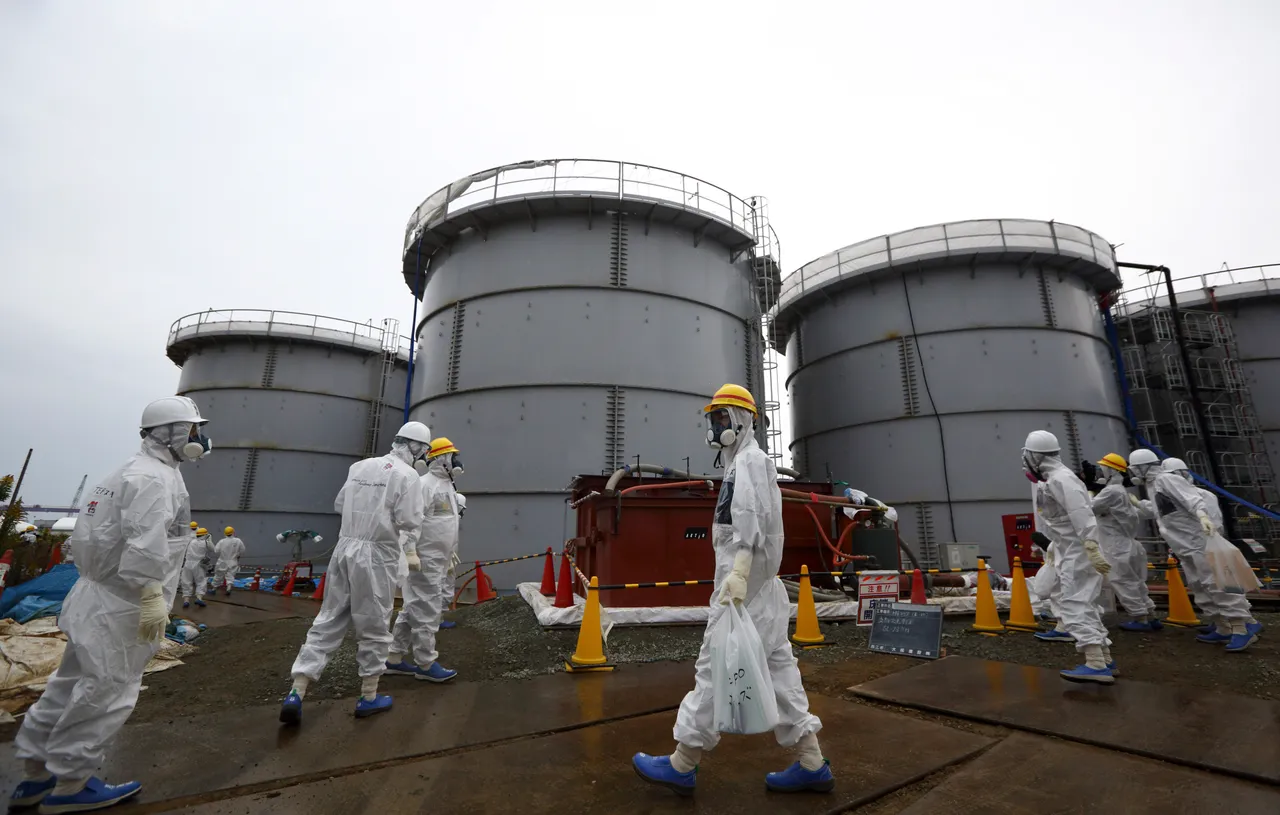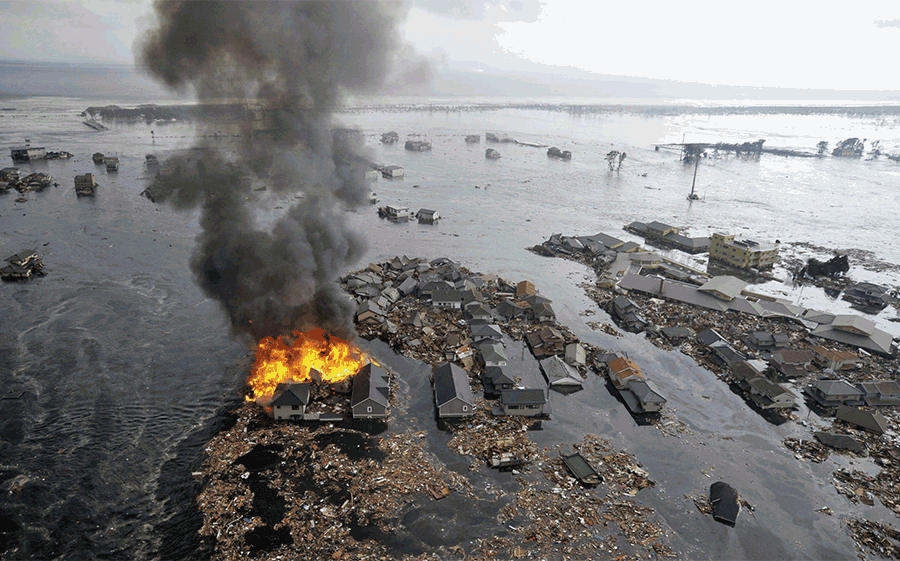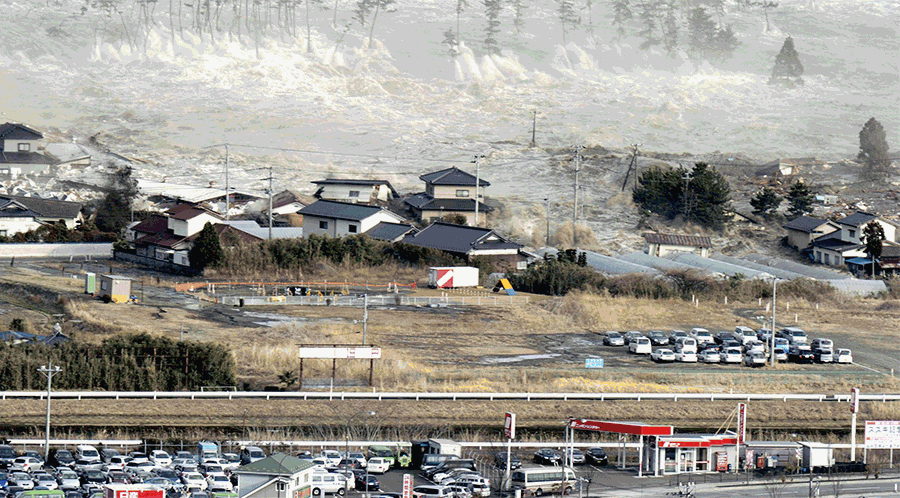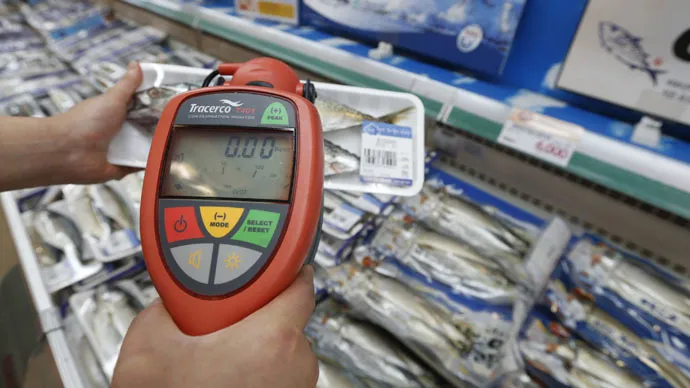
Previous government estimates put the Fukushima clean-up disaster cost at around $188 billion or more. But an independent think-tank says that it might actually be a lot more than that.
According to the Japan Center for Economic Research, they estimate that the clean-up cost might be something much closer to $626 billion. By their estimates, the cost of trying to address the problem is about 3x more than the government's estimate.

It has been 5+ years since the disaster occurred and they still aren't anywhere close to having the situation contained.
TEPCO recently had another failure with trying to use a robot to get to the damaged reactor. And after years of failure they finally reached out to the international community for help and they've asked for innovative solutions in trying to address the issue.
The government is still looking for a way to treat the radioactive soil and other waste; perhaps it wouldn't hurt them to consider industrial hemp as a possible solution.
The cost of this mess places quite a burden on the public and the government has already allegedly increased electricity rates in order to acquire more funds; claimed to be for the purpose of compensating evacuees from the disaster area.

A number of individuals involved with the incident have been fired and even had lawsuits brought against them.
Just recently, the Japanese government was finally held liable and found guilty of negligence in the matter. Hundreds of thousands of dollars is being awarded to victims who were forced to evacuate from their homes.
There are multiple lawsuits which have been launched over the incident.
The reactor decommissioning business is clearly getting a very lucrative opportunity for expansion over the incident. Yet, despite the available technologies and expertise they still seem to be struggling to sort out the issue.

A number of markets have been concerned about radioactive Fukushima food hitting the shelves: the UK, Canada, the US, and others.
Just this month, South Korea went ahead and expanded their current ban on Japanese fish products over lingering concerns for Fukushima contamination.
It has been admitted by the Tokyo Electric Power Company (TEPCO) that at present there is still about 300 tons of contaminated groundwater flowing into the Pacific Ocean every day. This has been happening for the past several years.
Seaborne radiation from Japan's nuclear disaster is reported to have been detected on the shores of Oregon and possibly other places as well. Seawater samples are said to have shown an indication of radiation but researchers say that there isn't any cause to worry.
According to a study published in the National Academy of Sciences last year, it was determined that most of the seafood off the cost of Japan was safe to eat. The results insisted that the overall contamination risk was very low. That study was conducted by several researchers who were from various Japanese universities.

Pics:
AP
Kyodo/Reuters
Reuters/Lee Jae-Won / Reuters
Source:
@doitvoluntarily/japanese-government-finally-held-liable-over-fukushima#@steemnews.online/re-doitvoluntarily-japanese-government-finally-held-liable-over-fukushima-20170331t181346381z
@doitvoluntarily/using-hemp-for-radiation-cleanup
http://www.huffingtonpost.com/entry/fukushima-disaster-anniversary-photos_us_56df07ace4b0000de40624e4
@doitvoluntarily/fukushima-cleanup-efforts-still-failing
http://www.japantimes.co.jp/news/2017/04/01/national/real-cost-fukushima-disaster-will-reach-%C2%A570-trillion-triple-governments-estimate-think-tank/#.WOP0R3RMSpo
http://www.irishtimes.com/news/top-nuclear-regulators-fired-over-fukushima-political-fallout-1.589742
http://www.japantimes.co.jp/news/2014/03/08/business/cash-cow-born-in-no-1-cleanup/#.WOP46nRMSpo
https://www.rt.com/uk/249501-radioactive-fukushima-food-uk/
https://nsnbc.me/2017/03/18/south-korea-expanded-japanese-fish-ban-over-fukushima-contamination/
http://www.huffingtonpost.com/entry/seafood-fukushima-radiation_us_56d4f6e6e4b0871f60ec971f
http://www.zerohedge.com/news/2016-12-10/officials-admit-radioactive-fish-us-west-coast-have-disturbing-fingerprint-fukushima